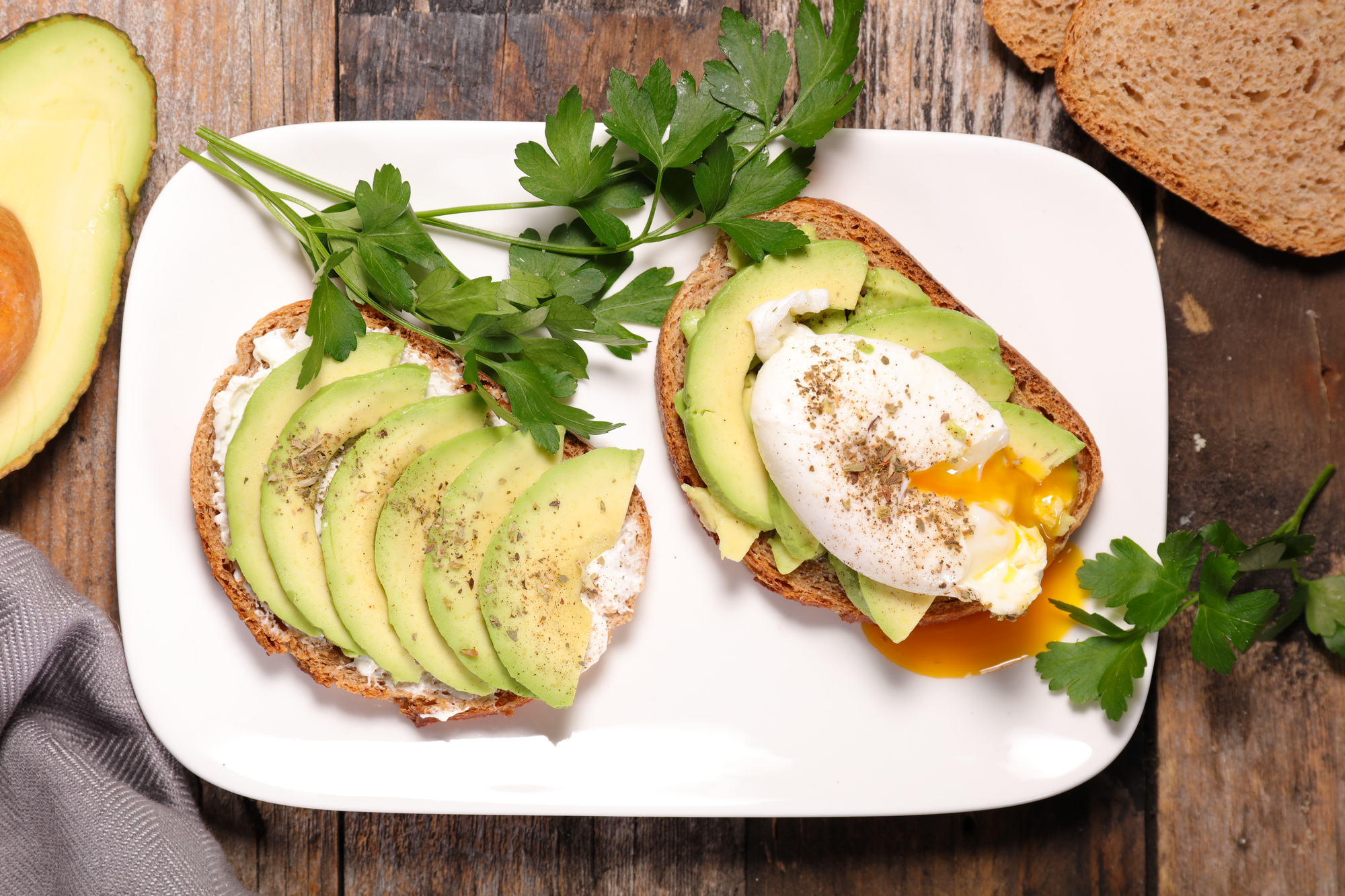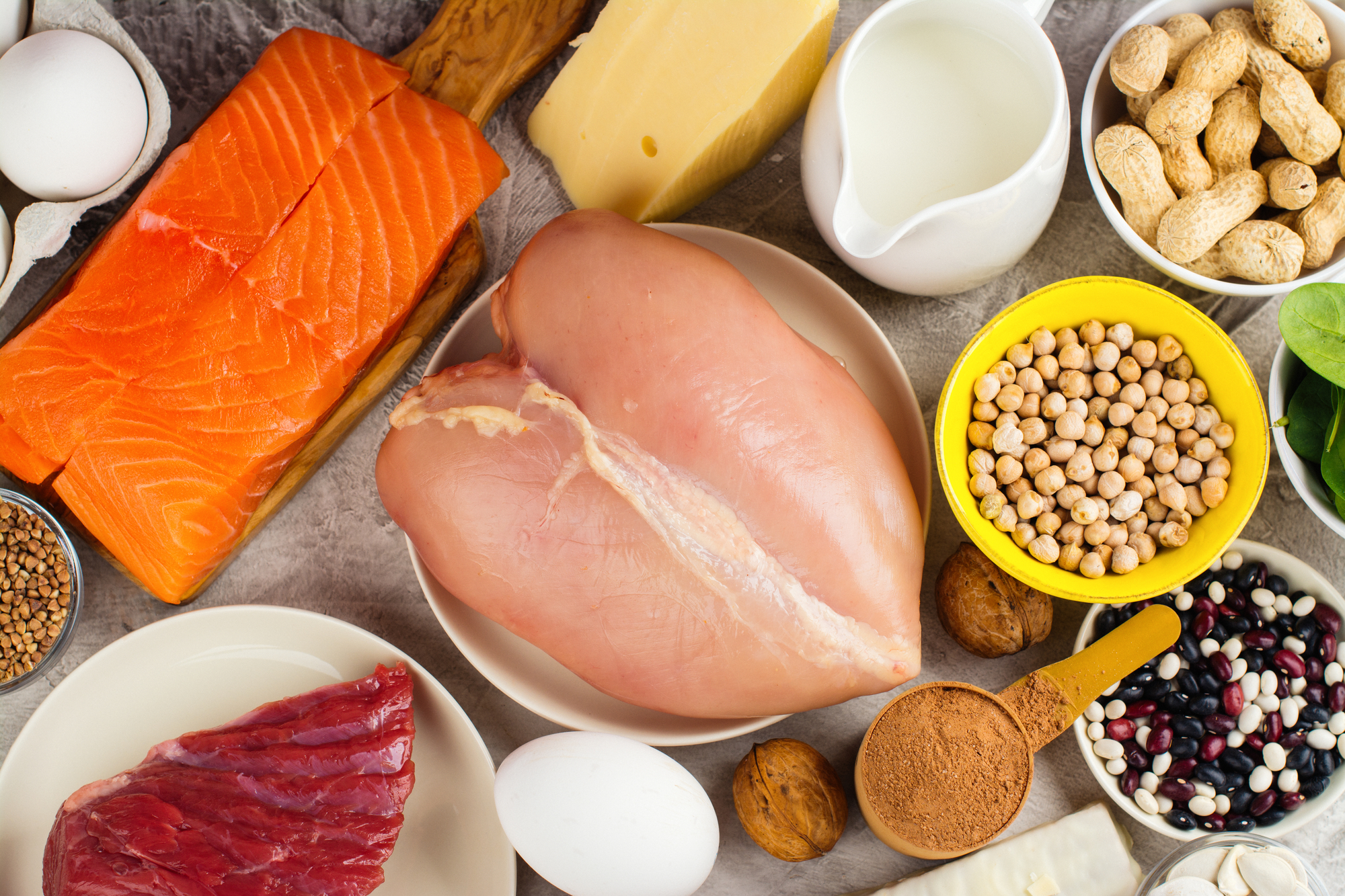Tips to Keep Hunger at Bay
Healthy eating includes eating three meals a day. But what if you feel constantly hungry and always looking for some food to eat? There are some tips that will help you to keep your hunger at bay and here they are:
1. Get Your Sleep

Photo by ©liudmilachernetska@gmail.com/ Depositphotos.com
Remember, a lack of sleep leads to overeating. That is why getting enough sleep is not just a great way to reload your brain to get ready for a productive day; it can actually help you to get control of your eating habits. Here are the major reasons why enough sleep is important for those who want to eat healthily and curb hunger.
- There are two hormones associated with hunger: ghrelin and leptin. Ghrelin, a hormone that stimulates appetite, forms when you do not get enough of sleep. Leptin, a hormone that decreases hunger, forms when you have enough sleep. Your body needs more leptin to control hunger and that is why getting enough sleep is important.
- There is a lipid known as the endocannabinoid. It is associated with a lack of sleep and in terms of eating habits, it makes you experience similar effects to marijuana. Endocannabinoid that forms in your body when you deprive yourself of sleep makes the act of eating more enjoyable, especially in the evening and especially when it comes to such foods as cookies, candy, and chips. That is why people who do not get enough sleep eat about 300 more calories a day than those who sleep for 8 hours.
- One more reason to allow yourself to get enough sleep is that more sleeping time decreases the time for eating. It is simple logic: decreasing you sleeping hours mean increasing hours of the day to eat.
In order to control the level of hormones and to improve your eating habits, it is important to create a healthy bedtime routine, which means that you have to go to bed and wake up at the same time every day and give yourself no less than 7 hours of sleep at night.
2. Breakfast Like a King

Photo by ©studioM/ Depositphotos.com
More and more Americans today allow themselves to skip breakfast. At the same time, more and more Americans gain excess weight or become obese. This makes us wonder if skipping breakfast is linked to weight gain?
Everyone knows an age-old tale that says you have to breakfast like a king, lunch like a prince and dinner like a pauper. Although not all of us tend to follow it, studies have found that eating breakfast not only gives you energy but can also help you to get control of your appetite for the rest of the day.
The thing that makes breakfast the most important meal you should never skip is that early morning meal increases dopamine levels in the brain, allowing to get control of impulses associated with cravings for sweets and urges to overeat.
It works like this: when you eat a nutrient-rich breakfast, your body releases dopamine in the brain, stimulating feelings of reward. It is exactly dopamine that provides the body with the signals of satisfaction. It means, that if there is a lack of dopamine in your body, you will try to increase its level, and the easiest way to do it is to eat some food. So those of us who skip breakfast do not get enough of dopamine in the morning which results in overeating during the rest of the day in order to reach normal dopamine levels. In contrast, people who eat their breakfast increase levels of dopamine and decrease the desire to overeat during the rest of the day.
3. Drink Water

Photo by ©sheftsoff/ Depositphotos.com
There are often cases when we can confuse thirst for hunger and that is why it is very important to drink enough water. The truth is that keeping your fluid intake can decrease the risk of hunger pangs and bingle episodes. So when you feel hungry, drink a glass of water and wait to see if you still want to eat some food. What is more, drinking water 15 minutes before your meals help digestion and aid weight loss. Although when it comes to weight loss, simply keeping your fluid intake is not enough, drinking more water during your day can help you to avoid unneeded food intakes and decrease the number of calories that come from drinks with a high-calorie content.
4. Drink Green Tea

Photo by ©5PH/ Depositphotos.com
Drinking green tea is a good alternative to drinking water when you feel hungry. A cup of green tea can stop you from binge eating and provide you with a number of health benefits.
Green tea is known as a great source of antioxidants. Catechins found in green tea help to boost your metabolism and keep the digestion process strong. Note that sugar-free green tea is calorie free and helps to detoxify the body.
In contrast to water, the best time to drink green tea is right after your meal when your metabolism rate is higher. It will help to boost metabolism rate and help the food to digest better and faster.
5. Eat More Fiber

Photo by ©fudio/ Depositphotos.com
It is not a secret that a diet high in fiber is known for its weight-loss benefits. Eating more fiber not only helps to lose weight, but to regulate appetite as well. The thing is that fiber intakes stimulate the release of appetite-suppressing hormones in the gut.
Nevertheless, not all fiber intakes provide weight-loss benefits. There are two types of fiber: fermentable fiber (beans and legumes, fruits and vegetables) and nonfermentable fiber (cereal fibers). When it comes to weight loss and appetite control, fermentable fibers are preferable.
6. Do Not Forget Protein

Photo by ©happy_lark/ Depositphotos.com
If you are familiar with the Robert Atkins diet, the best-known low-carbohydrate and high-protein diet, you know that it works great for those who want to lose weight. Although the diet was based on the belief that cutting carbohydrates stops sugar from getting stored as fat and increasing protein make the kidneys work harder to burn more calories, the truth is that proteins are actually sending “stop eating!” messages to the brain. That is why proteins help to lose weight even in combination with carbohydrates.
In order to get weight-loss benefits of protein, it is important to increase its intake to 30%, leaving 20% for fats and 50% to carbohydrates. Such approach will help to get satisfied with less food and result in eating fewer calories.


